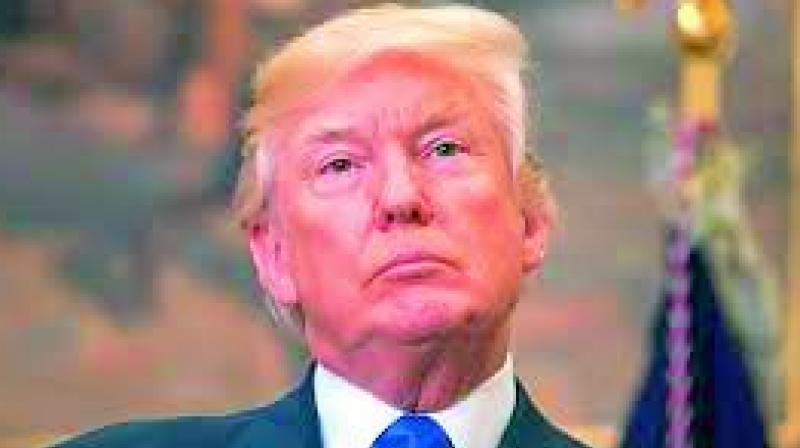What prompted the Jerusalem move?

The decision may have been unexpected, but the reaction wasn’t. US President Donald Trump’s announcement of recognising Jerusalem as Israel’s capital and initiating the move of the US embassy to that holy and disputed city has elicited much sound and fury. There is no shortage of analysis of what the likely short- and long-term effects of this decision will be, but less focus has been given to what considerations prompted this decision in the first place. As Trump correctly pointed out, the legal cover for this move had been provided in 1995 when the US Congress passed the Jerusalem Embassy Act, calling for relocating the US embassy in Israel to Jerusalem by May 31, 1999. That this never actually happened is because successive Presidents chose to exercise their waivers in a nod to the tenets of US foreign policy. That didn’t stop them from making promises while on the campaign trail, of course. When Bill Clinton was looking to clinch the Democratic nomination, he attacked President George H.W. Bush for having “repeatedly challenged Israel’s sovereignty over a united Jerusalem”, and later promised that he and running mate Al Gore would “support Jerusalem as the capital of the state of Israel”. It didn’t happen.
In 2000, George W. Bush did the same, promising on the trail that “as soon as I take office I will begin the process of moving the US ambassador to the city Israel has chosen as its capital”. Again, nothing happened. Eight years later, Democratic candidate Barack Obama followed suit, saying that Jerusalem was the “capital of Israel”. But when Obama took his seat in the White House, reality set in. But Trump is cast in a mould quite different from not just previous Presidents, but politicians in general: he is a man of his word and, for better or worse (usually the latter), he keeps his promises. He did it because this is what he does and this is why his people love him and his latest decision. Take the Christian evangelical voters: in the previous elections, 80 per cent of the evangelical vote went to Trump. Organised and religiously motivated, this group sees the recognition of Jerusalem as the first step towards fulfilling biblical prophecy and ushering in the end times.
For this lot, the rebuilding of the temple of Solomon is the precursor to the events outlined in the Book of Revelation — prophecies that they take quite literally. The building of the temple will be followed by the Rapture, in which the faithful will be lifted bodily to heaven to form the Lord’s army while the rest of humanity suffers the rule of the Antichrist, a time known as the Tribulation. Then shall follow the arrival of the Messiah and the battle of Armageddon after which the Jews will be converted to the evangelical version of the true faith. Look it up. Another group of core Trump supporters that hate Jews but love Israel are the so-called Alt-right. Take Richard Spencer, the man who shouted “Heil Trump” during a Washington rally and was supportive of the torch rally in Charlottesville where slogans of “Jews shall not replace us” were shouted.
Last, but never least, this also bags Trump the unstinting support of the dispropor-tionately powerful Israeli lob-by while also likely swinging ordinary Jewish voters his way. For now, at least. So while the world may wring its hands and wail, none of this will bother Trump, who has his eyes firmly set on a very domestic prize. Indeed, his response may echo that of Josef Stalin’s when he was asked to take the Vatican’s feelings into consideration: “How many divisions does the Pope of Rome have?” Stalin asked in turn. In Trump’s case, replace “divisions” with “votes”.
By arrangement with Dawn

